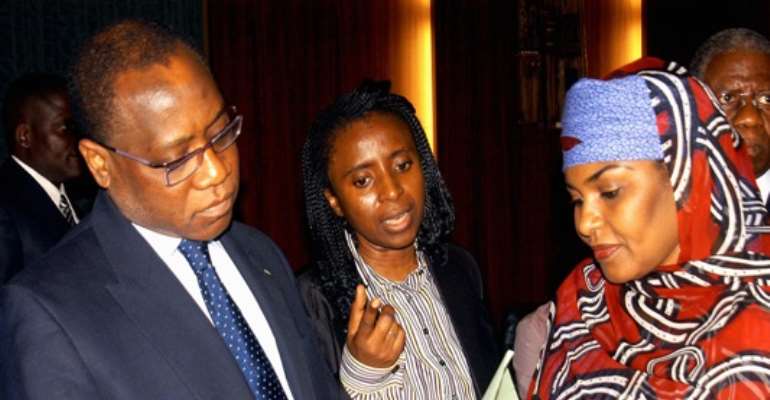FG To Spend Over N4 Trillion In 2011

ABUJA, Sept 09, (THEWILL) - With about a quarter of the year remaining for the 2010 budget to lapse, the Federal Government has announced plans to spend about N4.54 trillion in 2011.
The new plan is wrapped in the 2011-2013 Medium-Term Fiscal Framework (MTFF) and Fiscal Strategy Paper (FSP), which is the bedrock of the Revenue and Expenditure Frameworks of the government, approved by the Executive Council of the Federation yesterday.
Nigeria's Information Minister, Dora Akunyili; the Minister of State for Information and Communication, Labaran Maku and Finance Minister, Olusegun Aganga, dropped the hint after the weekly meeting chaired by Vice President, Namadi Sambo.
Akunyili explained that the 3-year plan is the "federal government’s public expenditure plan, which aims to ensure that planned spending is set at prudent and sustainable levels and is consistent with government’s overall medium-term fiscal objectives."
Aganga also said that in the three years of the MTFF, the government decided to peg the price of crude oil at a conservative rate of $58.6 and $62 per barrel, although he noted that the benchmark was not fixed.
"It is a high level framework which sets out the tone for the budget for the next year," Mr Aganga said. "It is prepared against the backdrop of gradual recovery from the global economic recession. Recovery from the crisis, as you know, is uneven; with emerging markets leading the recovery while a number of developed countries continue to cope with increasingly high deficits.
"The crisis was transmitted to the Nigerian economy mainly through the international market for oil, the domestic capital market, FDIs and remittances. GDP growth in Nigeria over 2004 to 2009 period averaged about 7 per cent. As of July 2010, headline inflation had moderated to about 13 per cent while food and core inflation are at 14 per cent and 11.3 per cent respectively.
"The naira - US dollar exchange rate has been relatively stable since mid 2009 and stability is returning to the banking sector as you know. Our future emphasis will be placed on a single digit inflation rate, double digit growth rate, convergence of the official and parallel exchange rates, special interventions to stimulate non-oil growth and completion of priority projects".
"The last one is infrastructure development. We know we have infrastructure deficit, which is quite huge and we know we cannot fund that deficit through our budgetary system only. The way forward is that we will encourage actively the concept of PPP which we have started doing, but there will be a lot of private investing opportunities and we hope that the sovereign wealth fund will act as that catalyst for local and international investors to come and invest in our infrastructure," Aganga said.
Government also approved a bill for the establishment of the Federal University of Petroleum Resources, Effurun (FUPRE) in Delta State, and Related Matters.
